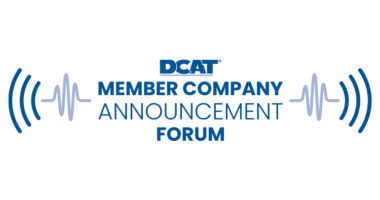Inside Takeda’s Proposed $62-Billion Acquisition of Shire
Takeda Pharmaceutical’s proposed $62-billion acquisition of Shire provides Takeda with geographic and product diversification. So what would a combined Takeda/Shire be?
The acquisition of Shire would strengthen Takeda’s position in markets outside of Japan and provide it with a specialist in rare-diseases and plasma-derived therapeutics and complement its positions in gastroenterology and neuroscience. The deal comes two years after Shire’s $32-billion acquisition of Baxalta, the biopharmaceutical company spun off from Baxter Healthcare. DCAT Value Chain Insights examines what a combined Takeda/Shire would be.
Inside the deal
Takeda Pharmaceutical Company and Shire have come to terms for a proposed acquisition of Shire by Takeda for approximately $62 billion. Takeda first disclosed an acquisition proposal for Shire in late March 2018, which was rejected by Shire, and subsequently made several revised proposals. This latest proposal, announced on May 8, 2018, has been approved by both companies’ boards of directors.
Under this latest deal, each Shire shareholder will be entitled to receive $30.33 in cash for each Shire share and either 0.839 new Takeda shares (£27.26 or $36.87) or 1.678 Takeda American Depositary Receipt shares. The transaction has been approved by both companies’ boards of directors and is expected to close in the first half of calendar year 2019. Upon the closing of the transaction, Takeda shareholders will own approximately 50% of the combined group. The transaction is subject to the approval of Shire and Takeda shareholders and certain customary closing conditions, including regulatory approvals.
Takeda says that a company will continue to be headquartered in Japan, expand its R&D presence in the Boston area, and have major regional locations in Japan, Singapore, Switzerland and the US. Takeda expects recurring pre-tax cost synergies for the combined group to reach a run-rate of at least $1.4 billion per annum by the end of the third fiscal year following completion of the acquisition.
Strategic rationale for the deal
Takeda says the acquisition of Shire would provide complementary positions in gastroenterology and neuroscience and provide it with positions in rare diseases and plasma-derived therapies to complement its existing position in oncology. Takeda said it will continue to focus on the acceleration of its oncology business, following its $5.1-billion acquisition of Ariad Pharmaceuticals in 2017.
With a proposed acquisition of Shire, Takeda would gain specialists in rare diseases and plasma-derived therapies, a position that Shire strengthened through it $32-billion acquisition in 2016 of Baxalta, the biopharmaceutical company spun off from Baxter Healthcare. In 2017, Shire recorded total revenues of $15.2 billion, which included product sales of $14.4 billion ($7.4 billion from Shire products and $7.0 billion from Baxalta products). Immunology is Shire’s largest therapy area with 2017 revenues of $4.370 billion and is one of five therapeutic franchises with sales in excess of $1 billion. The others, based on 2017 revenues, are hematology ($3.786 billion), neuroscience ($2.664 billion), internal medicine ($1.670 billion), and genetic diseases ($1.438 billion). Shire’s other therapy areas are oncology, which had 2017 revenues of $262 million, and opthamaltics with revenues of $259 million. On a pipeline basis, as of year-end 2017, Shire had eight drugs in registration and 15 therapies in Phase III development, 10 in Phase II, and seven in Phase I development. It had 35-plus therapies in preclinical development. Across therapy areas, rare diseases is the company’s main strategic focus. In 2017, its Rare Disease Division accounted for approximately $11 billion in revenues or approximately 72% of the company’s total revenues. Seventy percent of Shire’s clinical programs are focused on rare diseases based on its 2017 filings. Shire’s Neuroscience Division had revenues of approximately $4 billion in 2017.
Takeda says it is also banking on its oncology portfolio. With the Ariad acquisition, Takeda gained the anti-cancer drug, Alunbrig (brigatinib) for treating anaplastic lymphoma kinase-positive (ALK+) metastatic non-small cell lung cancer. At the time of the acquisition in 2017, Takeda said that the drug has the potential to reach peak annual sales of more than $1 billion. Alunbrig was approved by the US Food and Drug Administration in 2017 and a marketing authorization application was submitted to the European Medicines Agency in February 2017. In addition, with the Ariad acquisition, Takeda gained another targeted rare-cancer therapy, Iclusig (ponatinib), a commercialized leukemia drug, and a pipeline that includes targeted kinase inhibitors as well as Ariad’s translational science-based research and development platform.
Takeda is also gaining geographic diversification, particularly in the US, with a proposed acquisition of Shire. In 2017, 64% of Shire’s 2017 revenues of $15.2 billion were from the US; the remaining 36% was in international markets. Takeda had 34% of its 2017 revenues from Japan, 34% from the US, 17% from Europe and Canada, and 16% from emerging markets. A combined Shire/Takeda on a pro forma revenue basis would have 48% of its revenues from the US, 33% from international markets, and 19% from Japan.
On a labor basis, Shire had 23,044 employees as of year-end 2017 with 57% of those employees in the US and 36% in Europe. The balance of employees are based in Asia (5%) and Latin America (2%). Shire is headquartered in Dublin, Ireland with a R&D hub in Boston and an international hub in Switzerland.





